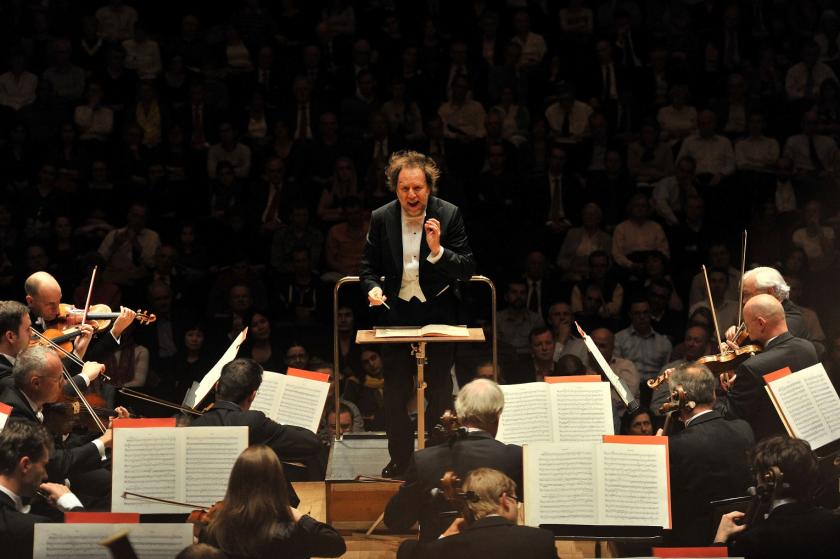Of all the Beethoven symphonies the Seventh is the one that can seem to whizz along under its own steam. At any rate, the impression Riccardo Chailly gave last night was of having fine-tuned his sleek Leipzig machine, turning on the engine and letting it fly. Only the extra stops I like to think a great conductor would usually have pulled out remained untouched.
All of that was still enough for a packed and refreshingly diverse audience to stand and roar at the end, duly overwhelmed enough by the mighty engine that is the Seventh Symphony - straining at the leash 200 years on from its first performance. I could see what Chailly was getting at - stripping away the bad German tradition of lumbering grandiosity, sidestepping any attempt at a charge of titans. He used the considerable full force of the Gewandhaus Orchestra to drive home the last laps, grading the string ensemble's sophisticated levels of tone in one impressive crescendo after another throughout the first movement; the coda's famous grind of double basses by no means stood alone in impeccable adjustment of volume.
After a bit of moody fiddling about with tritones and textures, Steffan Schleiermacher's new riff on Beethoven ended, very unsatisfyingly, exactly where it started
The usual controversies of rhythmic articulation in the Allegretto and of the right speed for the Scherzo's chorale-ish trio (here, quick, and necessarily so, given all the repeats) were stylishly solved. Added glories of energetic inner-part writing came across strange and new, neatly prepared by a few prophetic moments of texture and rhythm in the nimble Andante cantabile of the First Symphony. It was impressive to hear how Chailly can make his cohorts sound like a trim, sharp-edged period band when he wants to, though I'd still prefer two double basses and six first violins rather than treble that number in the First (admittedly two of the eight basses were kept in check until the Seventh). Somehow, though, this No 1 remained a bit poker-faced, just as the Seventh didn't ultimately billow as it can. I could hardly forget the last time I heard it in the same hall, from the Amsterdam Royal Concertgebouw, another orchestra Chailly knows well, under Haitink: a real universe of a performance rather than the brave but ultimately confined new world we heard yesterday evening.
It sounds like the first of Chailly's laudable attempts to get a riff of sorts from a contemporary composer on a Beethoven symphony paid off on Tuesday; but last night the record got stuck with Steffan Schleiermacher's Bann, Bewegung, Mit Beethovens Erster (Stasis, Movement with Beethoven's First). We seemed to be in for the likes of Grainger's Immovable Do with a four-chord flail around the C major that Beethoven neatly postpones at the beginning of his symphonic adventure. But while the C/Do finally proved movable, the piece did not, and, after a bit of moody fiddling about with tritones and textures, ended, very unsatisfyingly, exactly where it started. It sounded like a communal A-level project that ran out of steam rather than the polished work of a composer in his fifties. But that doesn't stop me looking forward to the other attempts in the series.
- Gewandhaus/Chailly Beethoven series continues at the Barbican on Tuesday, 1 November













Add comment